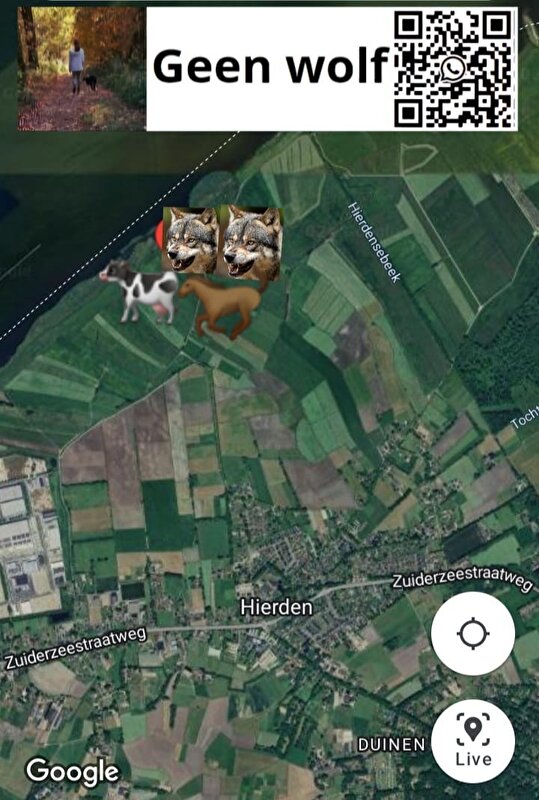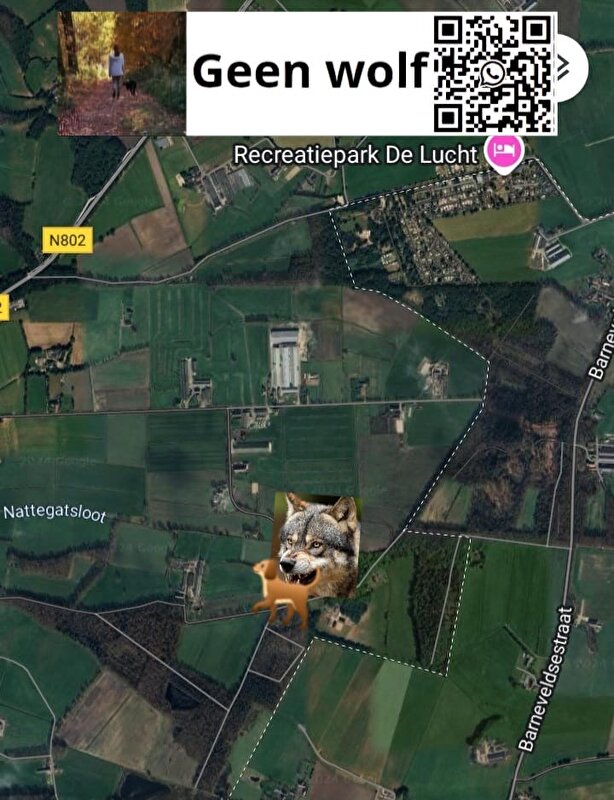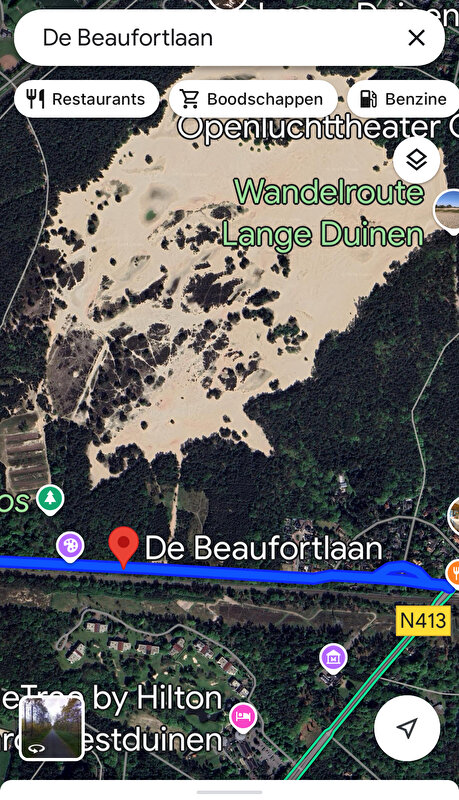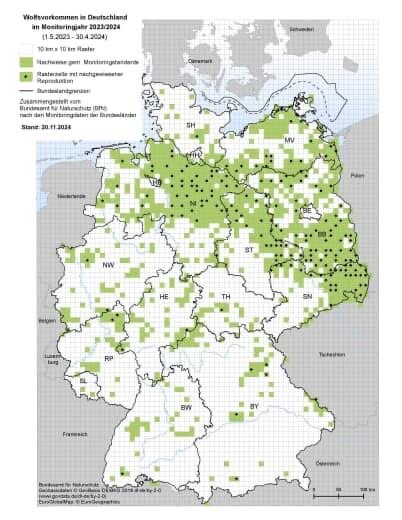Wie wil, denken jullie aan het insturen van een brief aan Von der Leyen? Om aandacht te vragen voor de stemming verlaging status strikt beschermde status van de wolf naar beschermd tijdens conventie van Bern te vragen.
Als je gebruik maakt van de voorbeeldbrief van Wijs met wolven, LET ER OP DAT JE JE WOONPLAATS EN DATUM gebruikt. En natuurlijk ondertekent met je naam.
Insturen kan tot 30 november.
E-mail naar:
Ursula.VON-DER-LEYEN@ec.europa.eu
Hier vind je de voorbeeld brief:
Citaat:
Dear Mrs. Von der Leyen,
In December, at the annual meeting of the Standing Committee of the Bern Convention, the EU will introduce the proposal to downgrade the legal protection of the wolf from “strictly protected” to “protected”. As a resident of the Netherlands, I care to let you know that lowering the protected status of the wolf is of utmost importance.
Also please end the uncontrolled growth of the bear population in Europe.
Due to the explosive growth of the wolf population, it is extremely important to have adequate possibilities for management of the population as an EU member state. The EU member states must also have to be able to jointly decide at European level which areas can offer wolves a reasonable existence and for which areas a zero status should be declared.
The goal of the protected status of the species has been achieved, therefore the protected status is outdated and must be reviewed. Currently there are over 20,000 gray wolves in Europe, while the number of 2,500 reproductive adults is sufficient for conservation of the species according to the research report “Population Viability Analysis” by Beissinger & McCullough 2002, Morris & Doak 2002 .
In the Netherlands, the situation is slowly but surely running out of control. The Netherlands has a population density of 529 people per square kilometer, making it one of the most densely populated countries in the world. The Dutch landscape has no pristine natural areas. Even in our largest nature reserve in the middle of the country Netherlands, De Veluwe, there are villages and several large cities, such as Arnhem and Apeldoorn. Moreover, the nature reserves, which are also recreational areas, attract millions of visitors every year. As a result, the wolves quickly become accustomed to people. We notice that wolves are losing their natural shyness and they are no longer reluctant to approach people.
We have also experienced excesses:
-several dogs have been attacked while walking near their owner;
-a 5-year-old child was bitten while playing in the woods;
-attacks on grazing animals are almost a daily occurrence. In which large horses and cows are also increasingly becoming victims.
Unfortunately, these were events that, according to the Dutch experts, would not occur. But they do and they evolve. The Netherlands is naturally bounded by the North Sea and the growing population of wolves in the rest of Europe has no means of escape after the Netherlands, the Netherlands is a mortality sink for the wolves which the inhabitants of the Netherlands experience as if they were part of an uncontrolled experiment.
We are now facing multiple serious problems, disturbance, and damage in our society. These can be briefly summarized in these four themes:
1. Animal suffering
2. Economic and livelihood security
3. Safety and public health
4. Disruption of society
1. Animal suffering
There are serious concerns about the increasing number of attacks by wolves on pasture animals. Within the pasture fence, multiple animals are regularly killed simultaneously (the so-called surplus killing), or are seriously injured. Animals are suffering enormously: either as a result of the physical attack or by witnessing an attack.
Protecting animals through fencing is complicated, costly, labor-intensive and offers no guarantee. Fences also prevent other protected wildlife from migrating between the small patches of nature the Netherlands possesses. In addition, the number of collisions with wolves is also increasing, from which we can conclude that the Netherlands cannot provide a safe habitat for the wolf.
2. Economic and livelihood security
More and more animal owners feel forced to quit, losing their source of income for their families. Areas are being closed, causing business owners in those areas to lose customers (restaurants and suchlike). Businesses also are losing income, as customers stay away for fear of the wolf, consider campsites in wolf territory, for example.
3. Safety and public health
People experience fear and chronic stress. There is fear for the safety of their animals, as well as fear of hiking, biking and recreating in wolf territory. Children no longer dare to bike to school. There is also fear of being outside after dark for people who live in the rural areas. Then there are vulnerable people, such as blind people who no longer dare to move around in their own home environment with their guide dog As a result, they lose a significant part of their independence and are now more dependent on help from others.
The chronic stress will – as it builds up - undoubtedly cause various health issues, such as heart disease, depression and emotional damage.
4. Disruption of society
Because media reports and information from various organizations often do not match what is experienced by people in practice, there is increasing misunderstanding towards each other. This affects society as a whole. Incidents have also shown that emergency services do not respond adequately and that emergency workers are hesitant to act when wolves are involved in an accident and must be put out of their misery. This is largely due to the fact that people fear the legal consequences and repercussion on social media.
I trust I have given you an idea of the situation in our country. As the situation in the Netherlands threatens to become untenable, I ask you kindly but urgently to take this information to heart and do your utmost to ensure that the protected status of wolves in Europe will actually be downgraded.
I kindly thank you for your attention and trust in your continued efforts.
Kind regards, yours faithfully,
Voor de overige e-mail adressen van de NL Europarlementariërs kijk even bij de maker van de brief stichting wijs met wolven.
https://www.wijsmetwolven.nl/2024/11/09 ... de-status/








